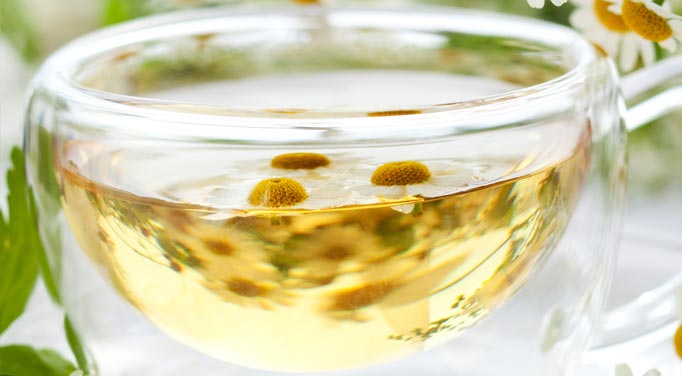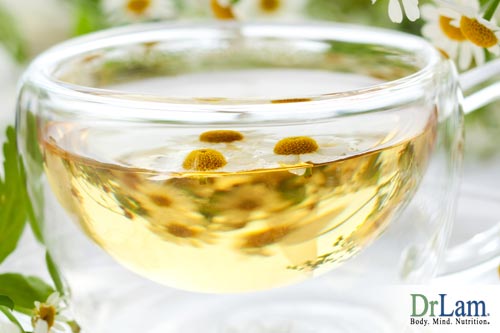 Health conscious people today regard herbal supplements highly, due to their amazing healing properties as well as their immunity boosting qualities. However, as more and more of these supplements are made available in the market, we should note that not all of them might be suitable for us. Some might have side effects, especially when herbs for the heart are taken with cardiovascular drugs.
Health conscious people today regard herbal supplements highly, due to their amazing healing properties as well as their immunity boosting qualities. However, as more and more of these supplements are made available in the market, we should note that not all of them might be suitable for us. Some might have side effects, especially when herbs for the heart are taken with cardiovascular drugs.
Let us look at some of the possible side effects.
This popular herb called chamomile is used in many parts of the world as one of the herbs for the heart. It is known to have a soothing and calming, spasmolytic, anti-inflammatory and vulnerary (wound healing) effect. Chamomile contains a substance which helps to calm and relieve spasms. Although chamomile is often used for such purposes, there is very little scientific proof regarding its efficacy in these areas.
Can heart patients take chamomile? Scientists are still unsure. So far, there has been no documented evidence of the effects, or absence of effects when chamomile is used in conjunction with drugs such as warfarin. As such, if you are a heart patient, you should closely monitor your intake of chamomile when taking drugs such as warfarin.
Feverfew is very popular for treating severe headaches and migraines. Its huge success and efficiency are supported by many highly successful experiments and trials.
Sometimes, this herb is also used for the relief of arthritic pain although clinical data supporting this use is presently lacking.
During some in-vitro laboratory studies, scientists found that the constituents of feverfew may cause our blood vessels to be dilated and reduce inflammation as well as blood clotting. These effects are associated with the inhibition, formation or release of arachidonic acid and serotonin. As feverfew may act as an anti-coagulant, heart patients who are receiving warfarin or any other drugs with anticoagulating effects should be careful.
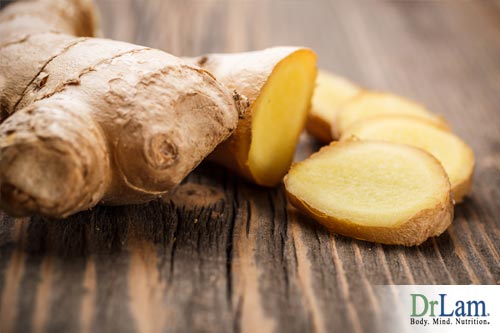 For over 2,500 years, ginger has always been prescribed to treat various ailments such as indigestion, diarrhea and vomiting. However, as to whether it really works remains unknown, as there are no randomized and controlled studies to document its effectiveness.
For over 2,500 years, ginger has always been prescribed to treat various ailments such as indigestion, diarrhea and vomiting. However, as to whether it really works remains unknown, as there are no randomized and controlled studies to document its effectiveness.
Some studies have pointed out that ginger may inhibit the effects of the enzyme thromboxane synthetase. The inhibition of this enzyme is usually associated with longer bleeding time as well as platelet inhibition. This means that the safe use of ginger in conjunction with other anticoagulants is questionable.
Through wide research In Germany, ginkgo has been approved for peripheral and cerebral circulatory disturbances. The use of ginkgo for therapies is therefore very popular in Europe.
Supplementing with gingko not only improves and enhances memory and brain development, it also prevents blood thickening.
Ginkgo's blood thinning effect should be monitored closed, for it may result in spontaneous bleeding. Excessive gingko should should not be taken together with aspirin, any other non-steroidal anti-inflammatory agent or other anticoagulant such a warfarin or heparin.
The name Ginseng ("man-root") is derived from its humanoid appearance, and because of its form, it is believed to be able to benefit all functions of the human body.
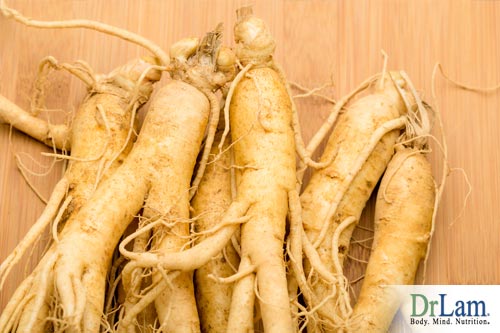 Ginseng has been highly regarded for thousands of years due to its unique healing and immunity boosting qualities and is another one of the common herbs for the heart. Today, this wonderful herb is still very popular in various parts of the world. In America alone, at least 6 million people are using ginseng. Ginseng is believed to be a tonic that enhances physical performance (including sexual performance), promotes vitality, and increases resistance to stress and aging.
Ginseng has been highly regarded for thousands of years due to its unique healing and immunity boosting qualities and is another one of the common herbs for the heart. Today, this wonderful herb is still very popular in various parts of the world. In America alone, at least 6 million people are using ginseng. Ginseng is believed to be a tonic that enhances physical performance (including sexual performance), promotes vitality, and increases resistance to stress and aging.
Although there are no firm statistics to support ginseng's performances, most people still trust ginseng and continue to take it as one of the herbs for the heart. Some ginseng contains more of the substance called digoxin, which may interfere with digoxin medications and create harmful effects.
Some other negative side effects are increased blood pressure in patients with hypertension, insomnia, vomiting, headache and epistaxis.
Extensive case studies regarding the effects of ginseng and drug interactions also suggest that ginseng may interact with warfarin as well. So far, there has been one case reported where ginseng appears to lower the normal blood readings as opposed to garlic.
There were also many other experiments that were conducted and some of them reported side effects such as headaches, tremulousness, and the appearance of mania in patients treated with phenelzine when given concurrently with Ginseng.
This is a type of drug used for treating the heart. Some herbs like ginseng contain this compound and may interact with digoxin medications.
According to the recent Food and Drug Administration advisory committee, they reported that digoxin toxicity was closely related to the use of plantain, a herbal laxative. Therefore, patients with abnormal heart contractions who are suggestive of digoxin effects but who have not ingested digoxin should be questioned about the recent plantain used. Some other herbs that may resemble digoxin activity are the uzara root (Uzarae radix), Kyushin, Ginseng and Hawthorn berries.
Licorice, a type of children's candy has also been reputed to be harmful as it induces many gastrointestinal problems such as peptic ulcer disease.
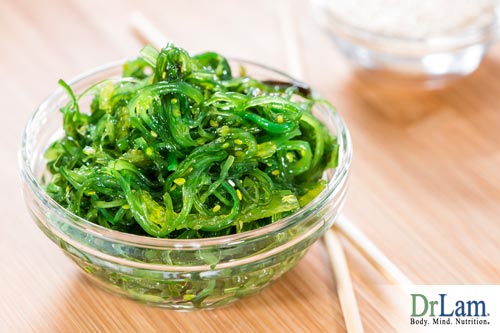 Kelp diets are a form of revolutionary dieting tool but sad to say, they have caused myxedema in patients sensitive to iodide. Kelp contains 0.7 ml of iodine per tablet.
Kelp diets are a form of revolutionary dieting tool but sad to say, they have caused myxedema in patients sensitive to iodide. Kelp contains 0.7 ml of iodine per tablet.
Scientists are suggesting that the prolonged use of kelp or excessive amounts may be associated with hyperthyroidism. It should, therefore, be considered a possible ideology of atrial fibrillation in patients with apparent "lone" atrial fibrillation.
As amiodarone may lead to dysfunction in the thyroid dysfunction, concurrent kelp use should be discouraged.
